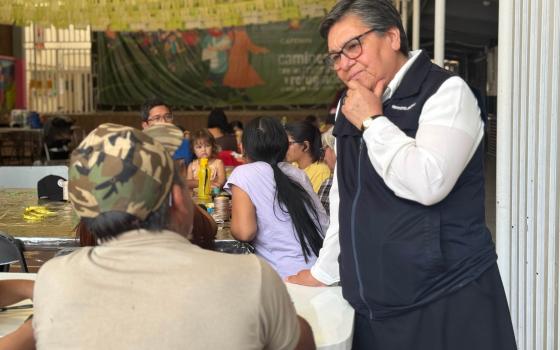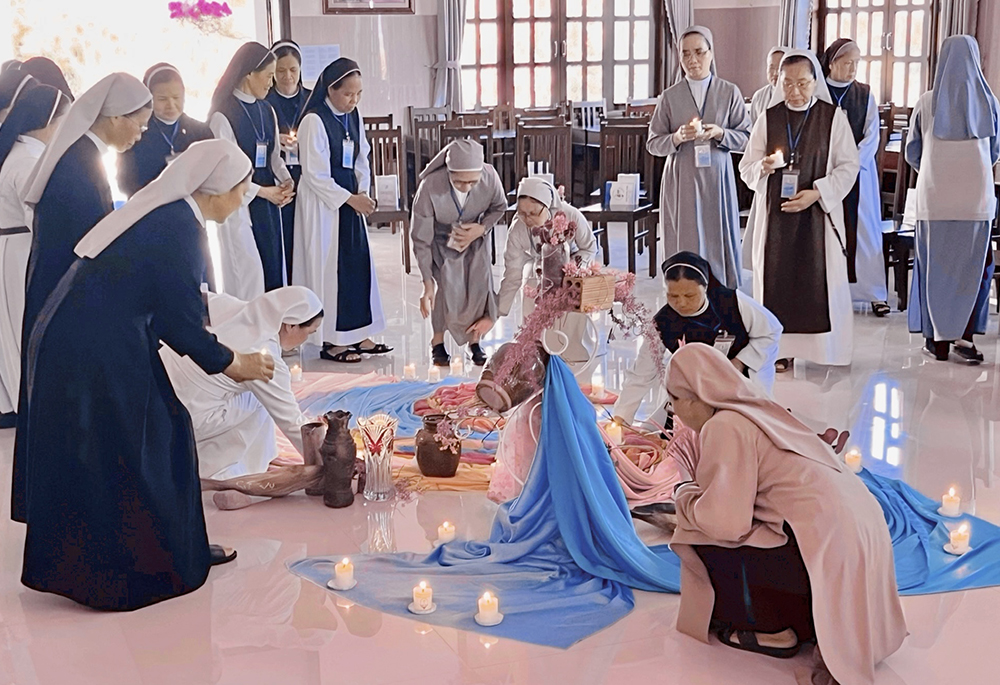
Sisters with lit candles in hands attend the opening ceremony of the first ever sabbatical course on March 18 at the Rosary Retreat House in the Lam Dong province of Vietnam. (Courtesy photo)
After decades of tireless service, many Vietnamese sisters in midlife find themselves physically drained, emotionally stretched and spiritually fatigued. Ministry demands rarely ease over time, leaving many nuns at risk of burnout.
A pioneering sabbatical program has been launched to help these women rest, reflect and reconnect with the deep joy of their vocation.
"Our sisters have given so much for so long," said Sr. Maria Ly Thi Bich Quyen, vice president of the Conference of Major Superiors in Vietnam. "They need time to rest, reflect and reconnect with their vocation."
To address this pressing need, the conference organized its first sabbatical course, bringing together 40 middle-aged sisters from 26 congregations and institutes. The course was held at the Rosary Retreat House run by the Daughters of Our Lady of the Holy Rosary in the southeastern Don Duong district of Lam Dong province.
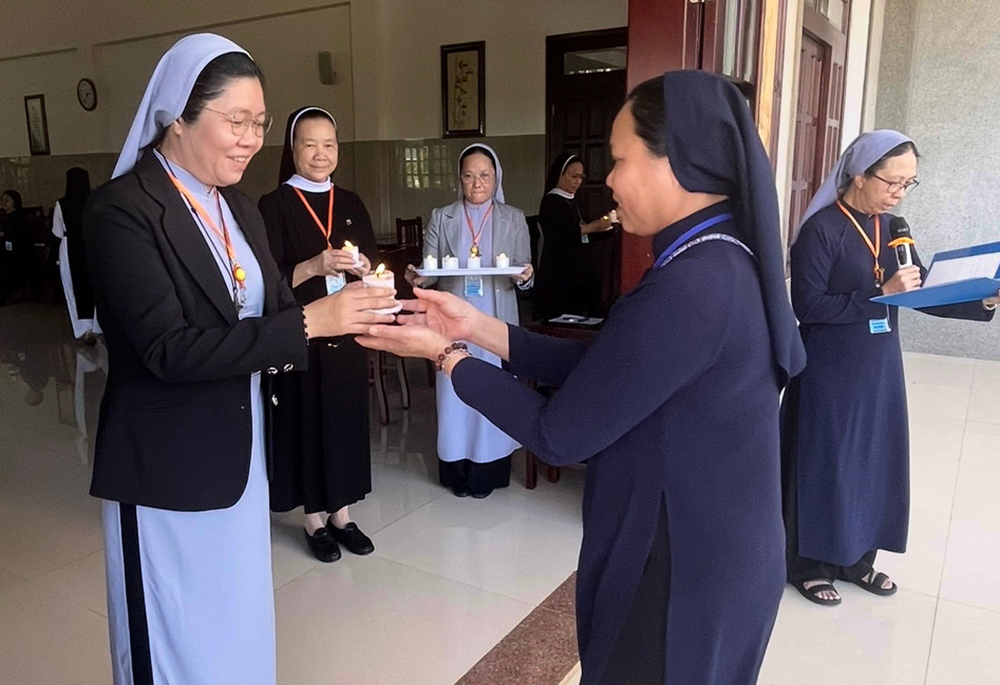
Sr. Maria Ly Thi Bich Quyen, left, offers a candle to a sister during the opening ceremony of the sabbatical on March 18 at the Rosary Retreat House in Lam Dong province. (Courtesy photo)
Bich Quyen said that the 10-week course, sponsored by the Conrad N. Hilton Foundation, is part of a broader three-year initiative (2025-2027) to support midlife and senior sisters, including former superiors, while recognizing the vital importance of holistic care. Two courses are planned each year. (Conrad N. Hilton Foundation is also a major funder of Global Sisters Report.)
Bich Quyen, also the provincial superior of the Congregation of Our Lady of the Missions in Vietnam, emphasized the uniqueness of this program. Traditional sabbaticals abroad, often lasting several months, are typically inaccessible to local sisters due to language barriers and financial constraints.
"Our sisters rarely have the opportunity to take extended breaks," she told GSR. "This course is designed to help them 'come away by yourselves to a secluded place and rest a while' [Mark 6:31]."
She noted that middle-aged sisters carry a disproportionate share of ministry work — including education, health care, social services and pastoral care. Few have the luxury of rest, and the local church lacks the resources to offer sabbaticals. As a result, many continue to serve despite physical ailments and emotional exhaustion.
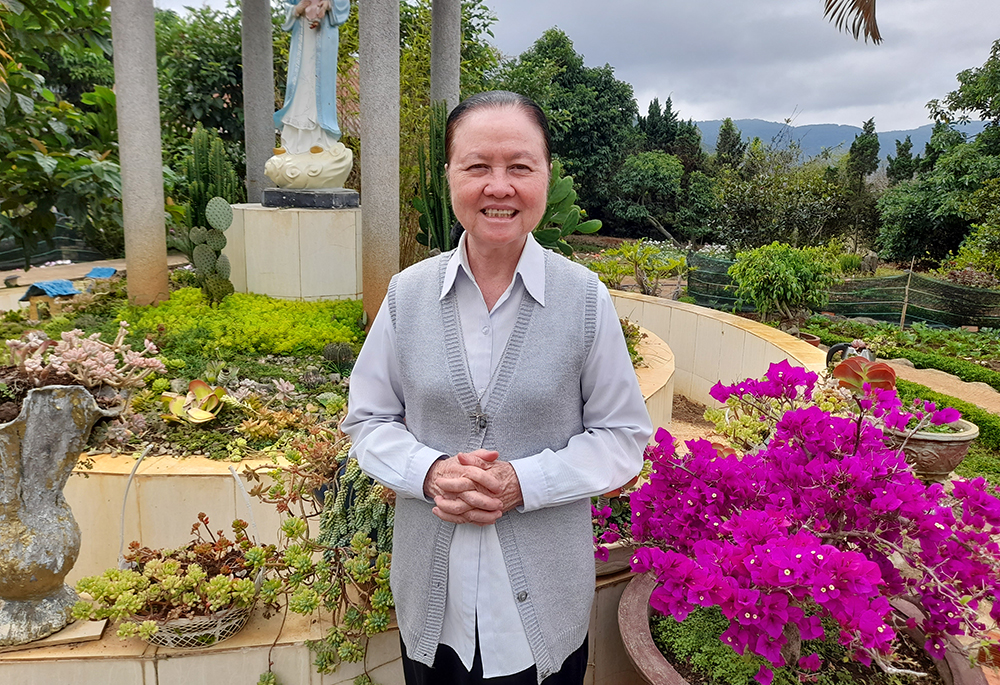
Sr. Maria Bianca Le Thi Yen is pictured at the compound of the Rosary Retreat House, May 3 in Lam Dong province. (Joachim Pham)
Daughters of Mary Help of Christians Sr. Maria Bianca Le Thi Yen, a participant, said that the course, which concluded May 24, offered a much needed respite.
"When I was young, I took on everything without thinking about the impact on my health. Last year, I was completely exhausted from overwork and had to be hospitalized," Yen told GSR. Sisters in her congregation receive only 10 days off each year, usually spent with their families during the Tet festival.
"Now I understand the importance of self-care. From this sabbatical, I regained my energy, vitality, joy, peace and enthusiasm to continue living my consecrated life to the fullest — loving God and appreciating all people," she said.
Participants spent their days reflecting on their spiritual journeys, rediscovering the meaning of their vows and vocations, and engaging in personal renewal. The program included spiritual direction, community sharing, personal reflection and visits to religious sites.
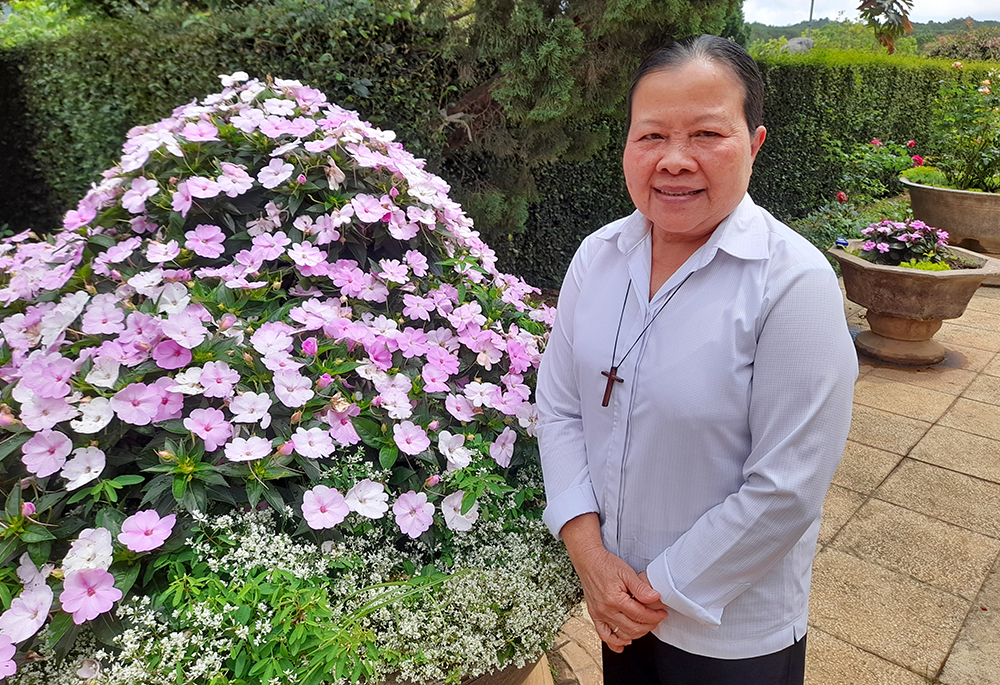
Sr. Marie Valéria Pham Thi Huyen, at the compound of the Rosary Retreat House in Lam Dong province on May 3 (Joachim Pham)
Many sisters confronted long-neglected inner struggles.
"I realize that I was suppressing my frustrations. The course helped me name those feelings, and I learned how to deal with them positively," said Providence de Portieux Sr. Marie Valéria Pham Thi Huyen.
Bich Quyen said that many of these sisters have lived through particularly difficult times, including years of limited education and hardship following the country's reunification under communist rule in 1975.
"They never had the chance to step back and process their experiences. Now, they are learning to take care of themselves, recognize their own needs, and rediscover their joy in vocation and ministry," she said.
Advertisement
Another key aspect of the program is the opportunity to share life with sisters from different congregations.
Franciscan Missionaries of Mary Sr. Maria Vu Thi Tam Hao expressed gratitude for the communal experience.
"We carried each other's burdens, laughed at our mistakes, and supported one another through our doubts. It reminded me that I'm not alone," Hao said.
One of her most profound realizations was the importance of communal care. During the course, she tended to fellow sisters dealing with health issues.
"We must care for one another, not just work alongside each other. This course taught me to see the community as a place of healing and growth," Hao told GSR.
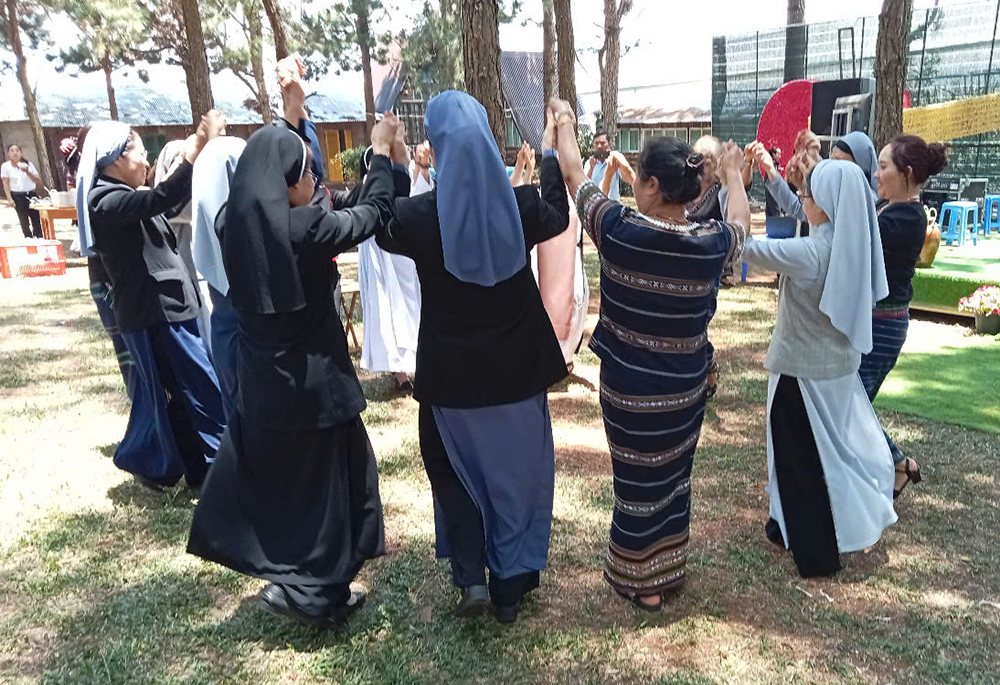
Sisters and Chu Ru ethnic villagers perform a traditional dance at Ka Don Church in Lam Dong province on April 6. (Courtesy photo)
The sabbatical also offered insights into building stronger community relationships.
Huyen admitted that in the past, she often lacked patience when caring for elderly sisters. "I realized that I wasn't living the spirit of mutual support," she said. "Now, I understand their needs better and feel more compassionate."
For many, the course is not just about healing but about rekindling their spiritual passion.
"This course reminded me how meaningful it is to slow down and truly be present with God," Yen said.
She noted that participants left the course with a renewed sense of purpose, eager to return to their ministries with fresh energy and deeper self-awareness. They appreciated the course, recognizing it might be a once-in-a-lifetime opportunity.
"This pilot program is just the beginning," said Bich Quyen. "We hope to build a culture where women religious can regularly renew themselves — physically, emotionally and spiritually — so they can continue their mission with strength and joy."

